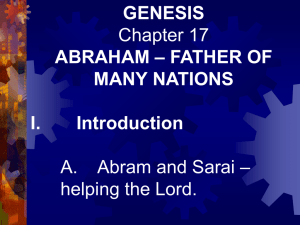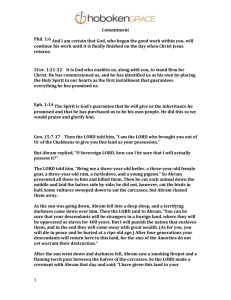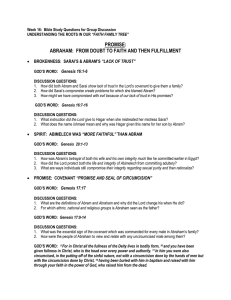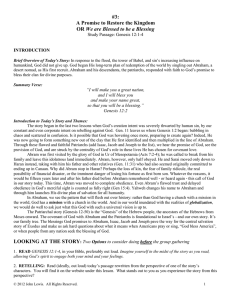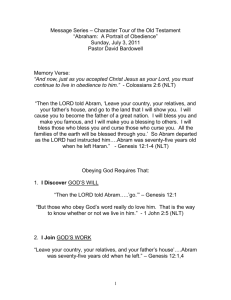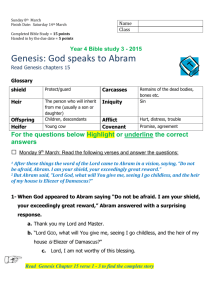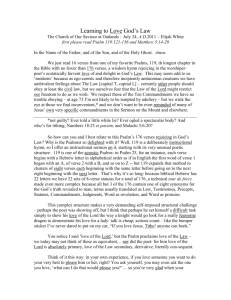Week 2
advertisement
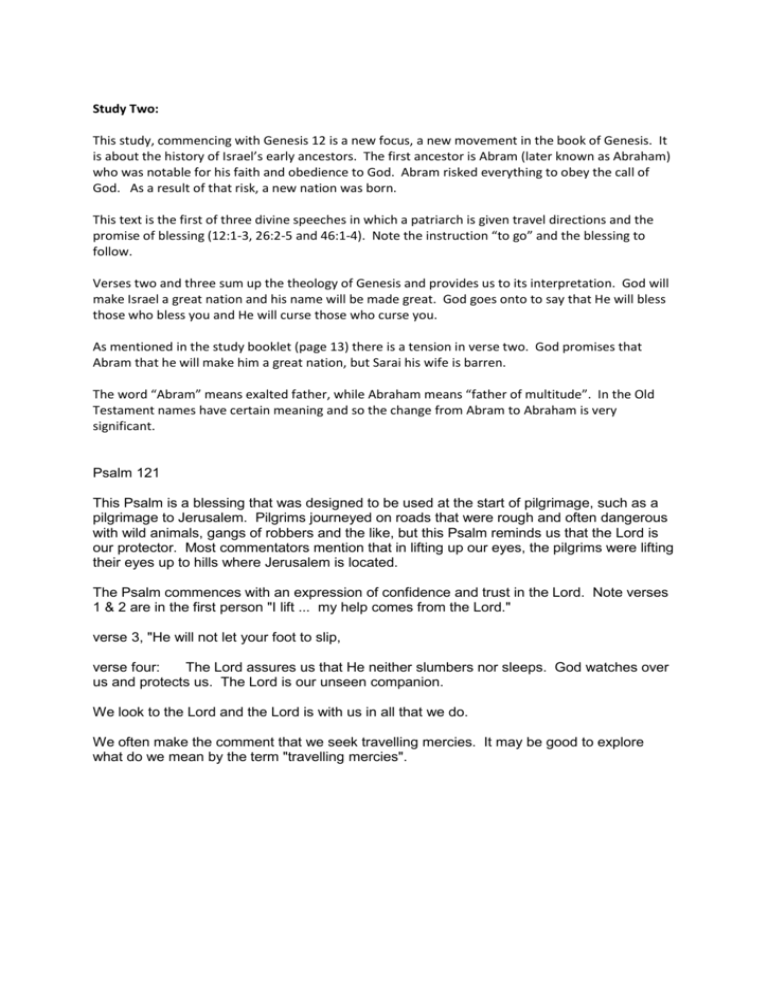
Study Two: This study, commencing with Genesis 12 is a new focus, a new movement in the book of Genesis. It is about the history of Israel’s early ancestors. The first ancestor is Abram (later known as Abraham) who was notable for his faith and obedience to God. Abram risked everything to obey the call of God. As a result of that risk, a new nation was born. This text is the first of three divine speeches in which a patriarch is given travel directions and the promise of blessing (12:1-3, 26:2-5 and 46:1-4). Note the instruction “to go” and the blessing to follow. Verses two and three sum up the theology of Genesis and provides us to its interpretation. God will make Israel a great nation and his name will be made great. God goes onto to say that He will bless those who bless you and He will curse those who curse you. As mentioned in the study booklet (page 13) there is a tension in verse two. God promises that Abram that he will make him a great nation, but Sarai his wife is barren. The word “Abram” means exalted father, while Abraham means “father of multitude”. In the Old Testament names have certain meaning and so the change from Abram to Abraham is very significant. Psalm 121 This Psalm is a blessing that was designed to be used at the start of pilgrimage, such as a pilgrimage to Jerusalem. Pilgrims journeyed on roads that were rough and often dangerous with wild animals, gangs of robbers and the like, but this Psalm reminds us that the Lord is our protector. Most commentators mention that in lifting up our eyes, the pilgrims were lifting their eyes up to hills where Jerusalem is located. The Psalm commences with an expression of confidence and trust in the Lord. Note verses 1 & 2 are in the first person "I lift ... my help comes from the Lord." verse 3, "He will not let your foot to slip, verse four: The Lord assures us that He neither slumbers nor sleeps. God watches over us and protects us. The Lord is our unseen companion. We look to the Lord and the Lord is with us in all that we do. We often make the comment that we seek travelling mercies. It may be good to explore what do we mean by the term "travelling mercies".


